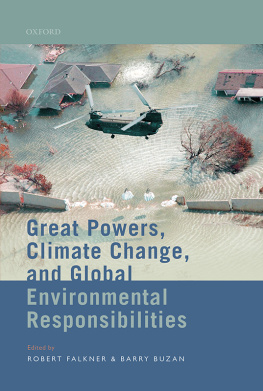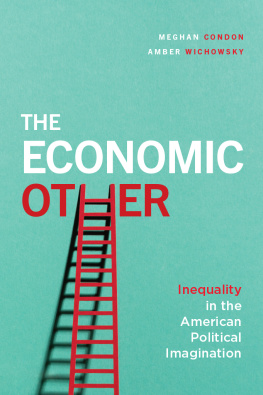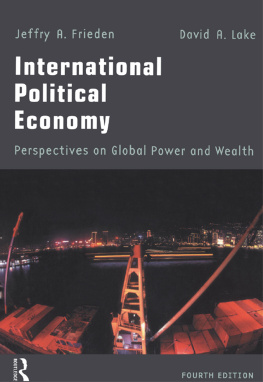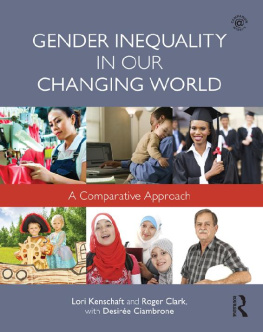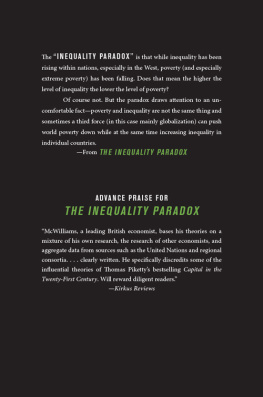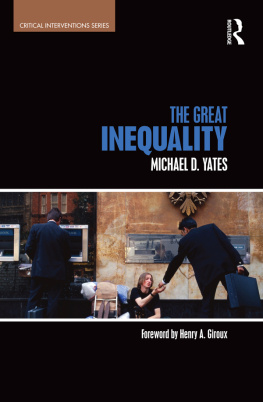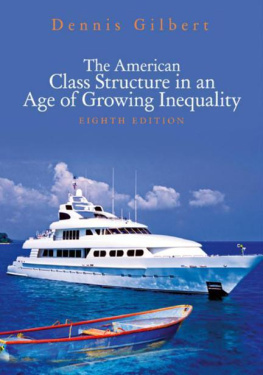
Global Inequality: Political and Socioeconomic Perspectives
Westview Replica Editions
This book is a Westview Replica Edition. The concept of Replica Editions is a response to the crisis in academic and informational publishing. Library budgets for books have been severely curtailed; economic pressures on the university presses and the few private publishing companies primarily interested in scholarly manuscripts have severely limited the capacity of the industry to properly serve the academic and research communities. Many manuscripts dealing with important subjects, often representing the highest level of scholarship, are today not economically viable publishing projects. Or, if they are accepted for publication, they are often subject to lead times ranging from one to three years. Scholars are understandably frustrated when they realize that their first class research cannot be published within a reasonable time frame, if at all.
Westview Replica Editions are our practical solution to the problem. The concept is simple. We accept a manuscript in camera-ready form and move it immediately into the production processs. The responsibility for textual and copy editing lies with the author or sponsoring organization. If necessary we will advise the author on proper preparation of footnotes and bibliography. We prefer that the manuscript be typed according to our specifications, though it may be acceptable as typed for a dissertation or prepared in some other clearly organized and readable way. The end result is a book produced by lithography and bound in hard covers. Initial edition sizes range from 400 to 600 copies, and a number of recent Replicas are already in second printings. We include among Westview Replica Editions only works of outstanding scholarly quality or of great informational value, and we will continue to exercise our usual editorial standards and quality control.
Global Inequality: Political and Socioeconomic Perspectives
edited by D. John Grove
Redistribution of the worlds wealth, not only among nation. states but among cultural, class, and sexual groups, has become increasingly a major issue of concern. This book examines existing inequality in both the domestic and international arenas. Its multidisciplinary approach facilitates an understanding of the complex structure of global distribution patterns and allows a comparison of redistribution patterns at different levels and in different political, social, and economic contexts. A key question is explored: to what extent are domestic inequalities a function of the international structure?
D. John Grove is assistant professor in the Graduate School of International Studies, University of Denver, and director of the Universitys Center of International Race Relations.
First published 1979 by Westview Press
Published 2018 by Routledge
52 Vanderbilt Avenue, New York, NY 10017
2 Park Square, Milton Park, Abingdon, Oxon OX14 4RN
Routledge is an imprint of the Taylor & Francis Group, an informa business
Copyright 1979 by Taylor & Francis
All rights reserved. No part of this book may be reprinted or reproduced or utilised in any form or by any electronic, mechanical, or other means, now known or hereafter invented, including photocopying and recording, or in any information storage or retrieval system, without permission in writing from the publishers.
Notice:
Product or corporate names may be trademarks or registered trademarks, and are used only for identification and explanation without intent to infringe.
Library of Congress Catalog Card Number: 78-21437
ISBN: 0-89158-252-5
ISBN 13: 978-0-367-01771-2 (hbk)
Contents
Raymond Duvall
William K. Tabb
Bruce Russet
Satish Raichur
Elise Boulding
D. John Grove
Baldave Singh
Fred R. von der Mehden
Raymond R. Corrado
Bert A. Rockman
E. Thomas Rowe
Elise Boulding, Professor of Sociology, University of Colorado
Raymond R. Corrado, Assistant Professor of Political Science, Simon Fraser University
Raymond Duvall, Associate Professor of Political Science, University of Minnesota
D. John Grove, Director of the Center of International Race Relations, and Assistant Professor, Graduate School of International Studies, University of Denver
Satish Raichur, Associate Professor of Economics, University of Denver
Bert A. Rockman, Associate Professor of Political Science, University of Pittsburg
Edward Thomas Rowe, Associate Professor, Graduate School of International Studies, University of Denver
Bruce Russett, Professor of Political Science, Yale University
Baldave Singh, Research Associate, Office of Minorities, University of Minnesota
William K. Tabb, Associate Professor of Economics, Queens College of the City, University of New York
Fred von der Mehden, Professor of Political Science, Rice University
One central issue of the twentieth century is a greater redistribution of global wealthnot just between rich and poor nations, but among cultural, sexual, class, and gender groups. Although the extent of global inequality between and within nations has now become an area for serious research, there is still a great deal to be learned about who gets what. Systematic research on distributional patterns is of very recent origin, and there remain uninvestigated areas. This book brings together a wide range of original papers which examine the conceptual, theoretical, and empirical problems of global inequality.
The papers were originally presented at the Conference on Global Inequality at Estes Park, Colorado, June 89, 1977. The purpose of the conference was to relate research being conducted at the Center on International Race Relations with other research projects on inequality studies. The papers present a broad approach to the global problem of skewed distribution of wealth. The conferees were grouped into three areas which became the basis for discussion: 1) issues in inequality studies, 2) linkages between international and domestic inequality, and 3) strategies for change.
The starting point for the conference discussions on issues in inequality studies revolved around the impossibility of determining the extent of inequality in the Jack Sprat social system. Jack Sprat and his wife value different goods. One values lean meat, the other values fat. Who is to say which is more desirable? To measure social inequality, one would, therefore, have to identify the inherent and intrinsic social goods valued by each group.
It could be argued, however, that every political system tends to socialize its different groups to accept the inequalities of that system. This not only means that socialization plays an important role in the definition of acceptable inequality, but it can also mean that socialization defines the preferences of groups: do they prefer lean meat or fat?
There was also considerable debate on the levels of analysis issue. Some felt that class was the only legitimate group for comparative studies. Others felt that cultural or sexual groups could not be subsumed under a class analysis. How the various levels are defined will partly determine whether economic exploitation or social discrimination is a major factor in the allocation process.


